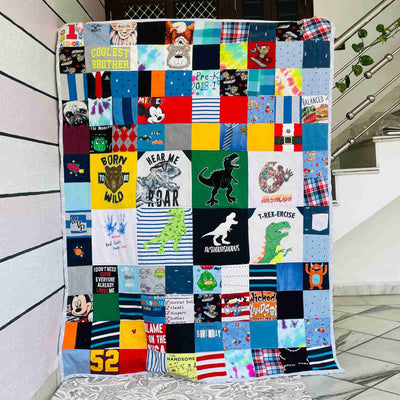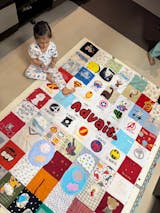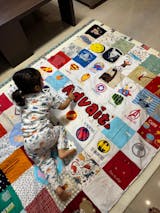Everything You need to know about Soft Toy Making in India
Introduction
A popular saying is, "Play is the child's language and toys are the words." The name of soft toys brings a smile to the face of children. Soft toys are popular not only in India but in the whole world and the craze for these soft goodies will not stop anytime soon. Soft toys are not only meant for children but are also used in home decoration. The soft toy-making industry is rising due to its high demand worldwide. Soft toys are made using various techniques, some are reliable on new and upgraded machinery and others are handmade.
History of toy making
Toy making in India finds its origins long back to the time of the Indus Valley Civilization. Toys were then made out of wet sand, mud, and wood. They were later carved out of wood with the introduction of iron, upgraded with less or no tools, and were fully handmade.

For example, the wooden toys of Awadh have a rich history of over 5 centuries. These lacquered toys were made from the wood of eucalyptus or gular. Forest sources were transported from the jungles of Chitrakoot and sonbhadra. For many toys, clay and terracotta served as the basic raw material, then baked with earthen colour. Other prominent materials used were sand, straw, caustic soda, and kabish. Toys in Indian history have also formed an integral part of handicraft history while being carved out by small or large pieces of wood.
Traditional Indian Toys
Some of the popular traditional toys of the Indian Subcontinent are the Laiphadibi Dolls of Manipur. Laiphadibi is the Manipuri word for dolls. These dolls depict the feminine image of god made from shabby clothes.

Moving down south comes the Channapatna wooden toys of Karnataka. These wooden toys can be traced back to Tipu Sultan's reign in the 18th century and are made out of soft ivory wood. For many years, artisans have been using non-toxic, non-chemical colours that they make themselves.

Just to the east of Karnataka comes the Kondapalli toys of Andhra Pradesh. These toys primarily depict scenes from actual life, animals, rural folks, and local deities. These are made with softwood from the tella poniki tree, easily found in the jungles of the state.

Evolution
- The soft toys market has evolved into more environment-friendly and easily recyclable modes through machinery and technology.
- The industry has been tremendously influenced by handmade soft toys made by artisans and family businesses across the country.
- Indian soft toy businesses are now growing towards competing with other foreign-made soft toys by offering an equal level of safety, packaging and top-notch fabric quality.

Current market coverage (Indian and Chinese Toys)
As of 2021, India's share in the global toy manufacturing market was a mere 0.5%. However, with the push by the Indian government as branded by 'Vocal for Local,' strong support has been proceeding to boost toy manufacturing in the country. India's toy market is expected to overtake China and double its potential to around $2 billion by 2025. In the last decade, India's toy imports have declined drastically, focusing on the upgradation of around 8000 MSMEs for manufacturing purposes.
The central government has risen the excise duty on imports to promote and protect the domestic toy industry from 20% to 60%. Primarily, the toys that have been imported from China have been made with the use of dangerous and toxic chemicals.
As per the report submitted by the Quality Council of India in 2019, 67% of imported toys are dangerous for kids. Thus, the government has taken steps to cease and control the distribution and manufacturing of cheap, low sub-standard and subjected to mandatory sample testing.
Conclusion
Soft toys are fascinating and are considered uncomplicated symbols of childhood. In the last 70 years since India got independent, we haven't trusted our indigenous toy-making industry. As we gear up as a nation for our focus on a self-reliant approach, we gear up to realize the full potential of soft toy-making industries. Every choice matters, even for the smallest toy possible, and it could make the biggest difference. It's you, your choice and your responsibility to create and buy Indian!
by Riya Jogi :)









